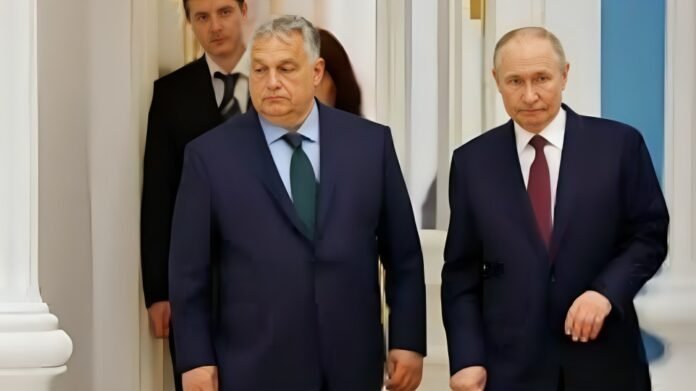Because of its controversial position on the Ukraine war, Hungary has been stripped of the right to hold the next meeting of EU foreign and defense ministers. This decision comes a few weeks after Hungary took over the presidency of the Council of European Union, which usually involves hosting such functions. The move follows a visit to Moscow that drew wide criticism within the EU.
EU’s Answer to Hungary Loses
The EU’s foreign policy chief, Josep Borrell, said there must be consequences for what Hungary did and stressed that even if symbolic, it is necessary to send a signal. In response, Hungary called this decision “totally childish.” Usually, every six months, under each new council presidency, EU foreign and defense ministers meet to discuss critical global issues. Instead of Budapest, the next set of meetings scheduled for 28-30 August will now occur in Brussels.
Hungary Loses Pro-Russia Stance Criticized
After meeting with Putin, Orban accused the EU of having a pro-war policy, which prompted criticism from Borrell, who stated that the only “war party” is Putin himself. According to him, all EU member states except Slovakia have criticized Hungary for its behavior. He found it proper to move upcoming meetings to Brussels to reflect disapproval within the EU.
Reactions from Leaders in the European Union (EU)
Hungarian Foreign Minister Peter Szijjarto responded on Facebook teasingly, describing this as if they were among small kids at school. President Putin met with Orban during his self-proclaimed peace mission shortly after taking over council presidency by Hungary. The mission included visits with leaders in China, Ukraine, and the United States, including Republican presidential candidate Donald Trump.
European Union (EU) Leaders Condemn Actions By Prime Minister Orban
Many European leaders have condemned Orbans’ actions, such as President Von der Leyen, labeling them nothing but an appeasement mission. Finnish Prime Minister Mr Orpo said that Orban did not mandate negotiations or discussions on behalf of the EU. Swedish PM Ulf Kristersson criticized this trip as sending the wrong signal and insulting Ukraine’s struggle for freedom.
Hungary’s Break Away From Consensus In EU
This is just another example in a series of cases where Hungary has been at loggerheads with the EU over its response to Russia’s invasion of Ukraine. After the April 2022 reelection, Orban positioned himself against the Union, using Hungary’s veto power several times to delay the €50bn financial aid package to Ukraine.


